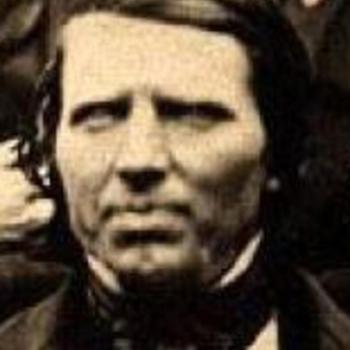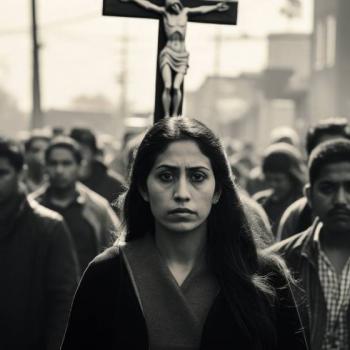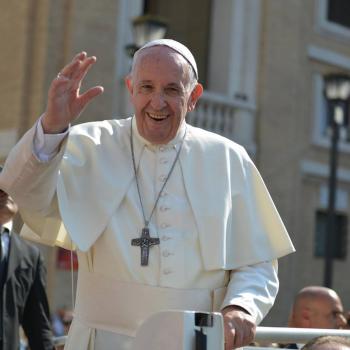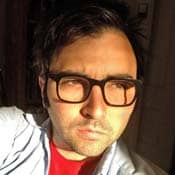It's tempting, in our perpetually overheated political climate, to try to eliminate "outside factors" that seem to complicate the process. Most often, the chief offender is religion.
Religion muddies the waters of politics; people's personal beliefs often seem like a wild card that, if it could be pulled from the deck, would make things work a lot smoother. In many ways, our political system hinges on this idea. The separation clause, originally intended to ensure there would be no mandated state religion, has been stretched and reshaped to ensure that we don't consider religion in political discourse at all.
The problem is that this is wholly unnatural. The notion that religion is some additional appendage, a vestige of our evolutionary history, is an Enlightenment idea that shaped the way we've viewed religion for centuries. It is finally running its course.
Readers may be surprised to know that something as seemingly simple as a definition of religion has been, for some time, a point of contention among scholars. At the crux of the controversy is what role religion plays in culture.
One of the best considerations I've read on this topic is Mark C. Taylor's book After God. I've been reading through it for a few weeks now, and it seems that everywhere I look, Taylor and his ideas are popping up. The latest instance is an excellent piece at The Revealer in which S. Brent Plate considers the movie The Ledge. In the middle of his review ,he offers Taylor's definition of religion, which I'm copying here wholesale:
Religion is a complex adaptive network of myths, symbols, rituals, and concepts that simultaneously figure patterns of feeling, thinking, and acting and disrupt stable structures of meaning and purpose. When understood in that way, religion not only involves ideas and practices that are manifestly religious but also includes a broad range of cultural phenomena not ordinarily associated with religion.
Plate uses Taylor's definition to illustrate that, from what he calls a "human-centered understanding of religion," religion still functions in culture without any kind of deity. That is, for Plate, religion is primarily a narrative "about how the world operates." He shows that this more general definition covers things we typically think of as religions—Christianity, Islam, Buddhism, etc.—but it also covers narratives that we normally don't consider, like atheism. In fact, Plate's excellent piece goes a long way toward showing (by using the website of the American Atheists) how atheism is actually a form of religion.
In light of this definition, we can't separate religion from the rest of culture. It is not, in fact, that additional appendage, but a part of who we are as much as gender and race. The question we are left with is how religion will function, what role will it play, in other areas of life like political discourse.
To date, it seems like there are only two, highly polarized views. Either we leave religion out of the conversation, or we politicize it and use it as a platform. An example of the latter is Michele Bachmann's recent signing of "The Marriage Vow: A Declaration of Dependence Upon Marriage and Family," a pledge issued by an organization called Family Leader, which has connections to the more prominent evangelical organization Focus on the Family. In this case, adherence to a set of beliefs is a way of telling potential supporters that a politician is on their team.
But this is not religion, really. It is religiosity. It is political posturing, but as far as religious considerations in politics go, this is what we get. I believe there is an alternative. I believe there is a comprehensive way to talk about religion as an important part of culture, as the explanatory narrative that Plate identifies it as. This kind of religion is more difficult to talk about, however; it doesn't lend itself to concise talking points, or dogmatic pledges. To deny that it exists, though, is to be an incomplete person. This kind of religion encompasses both belief and non-belief, and every shade between, but it is still religion.
My sense is that this understanding of religion is becoming increasingly more visible. In all varieties of culture from film to literature to politics, it seems people are becoming more comfortable acknowledging that they are, in fact, religious, even if they are unsure as to exactly what this means. This flies in the face of the "spiritual, but not religious," trend that, I think, served as a way station on the way to a more comprehensive understanding of the ways in which we are all religious. "Spiritual, but not religious" is a religion itself.
Progressive Christians have an amazing opportunity here to step to the fore and model what this kind of understanding of religion looks like. We can be united in both religious expression and belief, and we can show how, rather than being dogmatic, rigid, and, ultimately incompatible with political discourse, an open acceptance of our own religious views can lead to more dialogue and more opinions being voiced in the square.
7/12/2011 4:00:00 AM





